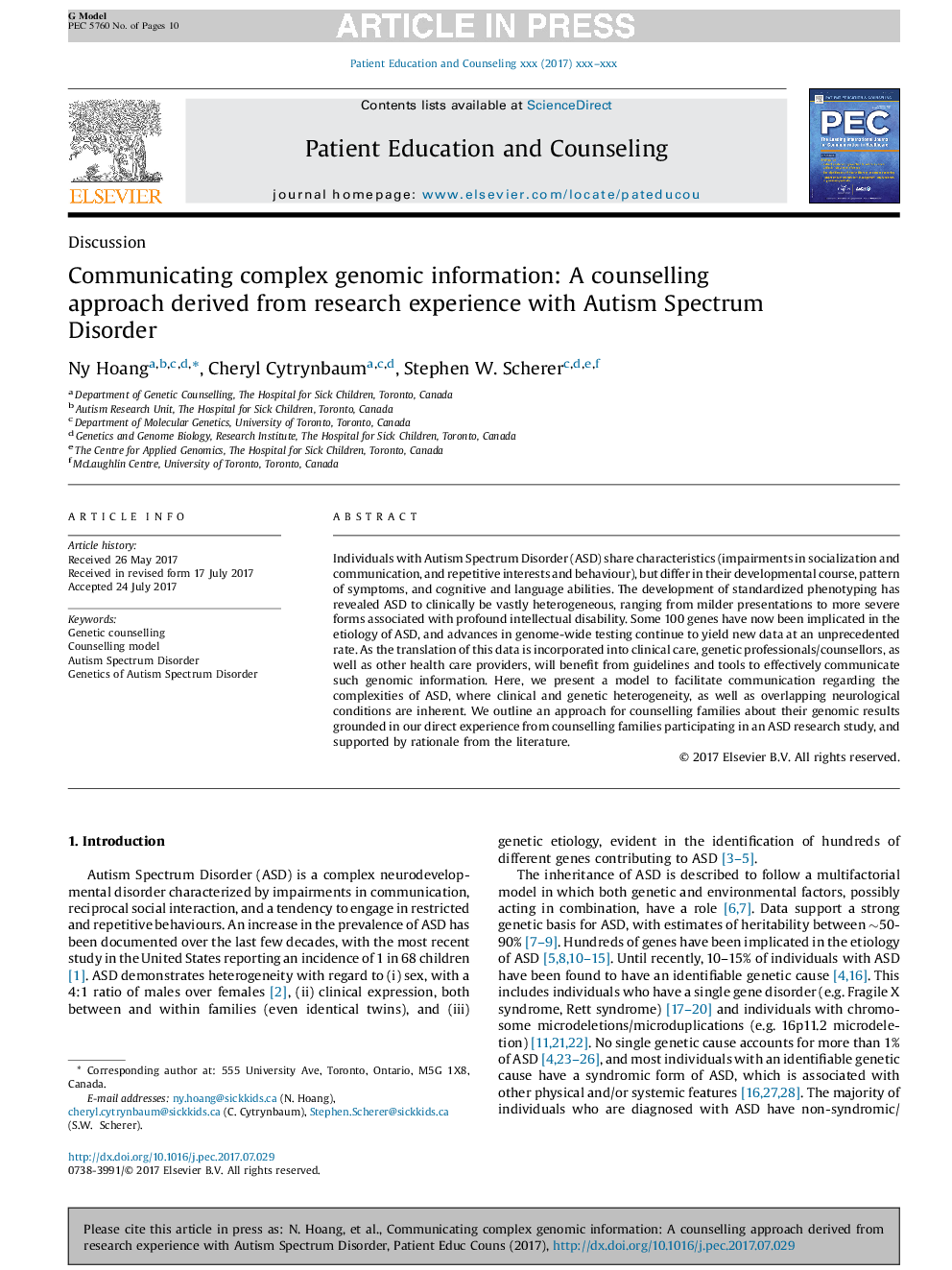| Article ID | Journal | Published Year | Pages | File Type |
|---|---|---|---|---|
| 8765071 | Patient Education and Counseling | 2018 | 10 Pages |
Abstract
Individuals with Autism Spectrum Disorder (ASD) share characteristics (impairments in socialization and communication, and repetitive interests and behaviour), but differ in their developmental course, pattern of symptoms, and cognitive and language abilities. The development of standardized phenotyping has revealed ASD to clinically be vastly heterogeneous, ranging from milder presentations to more severe forms associated with profound intellectual disability. Some 100 genes have now been implicated in the etiology of ASD, and advances in genome-wide testing continue to yield new data at an unprecedented rate. As the translation of this data is incorporated into clinical care, genetic professionals/counsellors, as well as other health care providers, will benefit from guidelines and tools to effectively communicate such genomic information. Here, we present a model to facilitate communication regarding the complexities of ASD, where clinical and genetic heterogeneity, as well as overlapping neurological conditions are inherent. We outline an approach for counselling families about their genomic results grounded in our direct experience from counselling families participating in an ASD research study, and supported by rationale from the literature.
Related Topics
Health Sciences
Medicine and Dentistry
Medicine and Dentistry (General)
Authors
Ny Hoang, Cheryl Cytrynbaum, Stephen W. Scherer,
